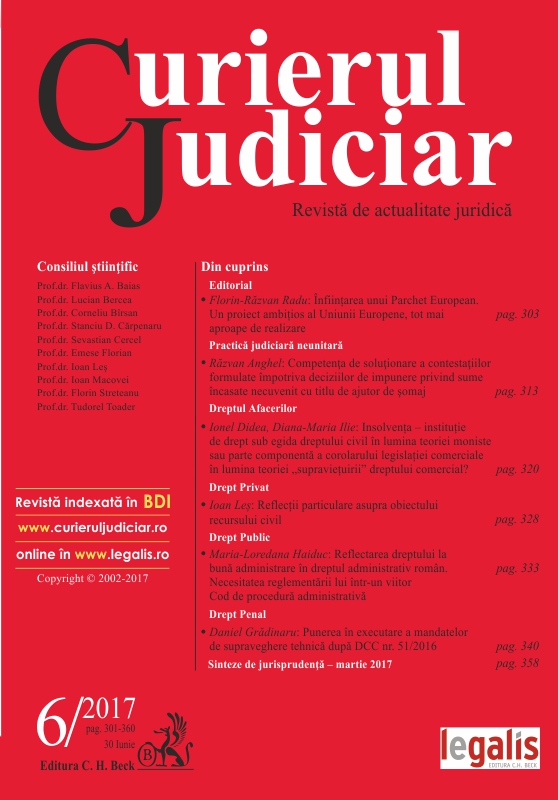Punerea în executare a mandatelor de supraveghere tehnică după Decizia nr. 51/2016 a Curții Constituționale a României
The enforcement of the electronic surveillance warrants after the decision no. 51/2016 of the Romanian Constitutional Court
Author(s): Daniel GrădinaruSubject(s): Law, Constitution, Jurisprudence
Published by: C.H. Beck Publishing House - Romania
Keywords: electronic surveillance; criminal investigation bodies; evidentiary process; methods of proof; evidence obtained unlawfully; the fairness of the proceedings as a whole
Summary/Abstract: The electronic surveillance measure represents an evidentiary process, a way of producing evidence in the criminal proceedings. The gathering and producing evidence is the main goal of the criminal investigation activity and, therefore, could be done by the prosecutor or criminal investigation bodies of the judiciary police or special ones only. The nullity of a method of proof unlawfully obtained could be raised in accordance with art. 281 and 282 of the Criminal procedural code and these methods may not be used in criminal proceedings, with the observance of art. 102. On the other hand, the evidence which was unlawfully obtained may not trigger de plano exclusion of that evidence, but shall be examined in terms of fairness of the proceedings as a whole. It means that the accused person should have the opportunity to challenge the authenticity of the recording (taped conversation) and opposing its use. In addition, the quality of the evidence must be taken into consideration, including whether the circumstances in which it was obtained cast doubt on its reliability or accuracy.
Journal: Curierul judiciar
- Issue Year: 2017
- Issue No: 06
- Page Range: 340-344
- Page Count: 5
- Language: Romanian
- Content File-PDF

